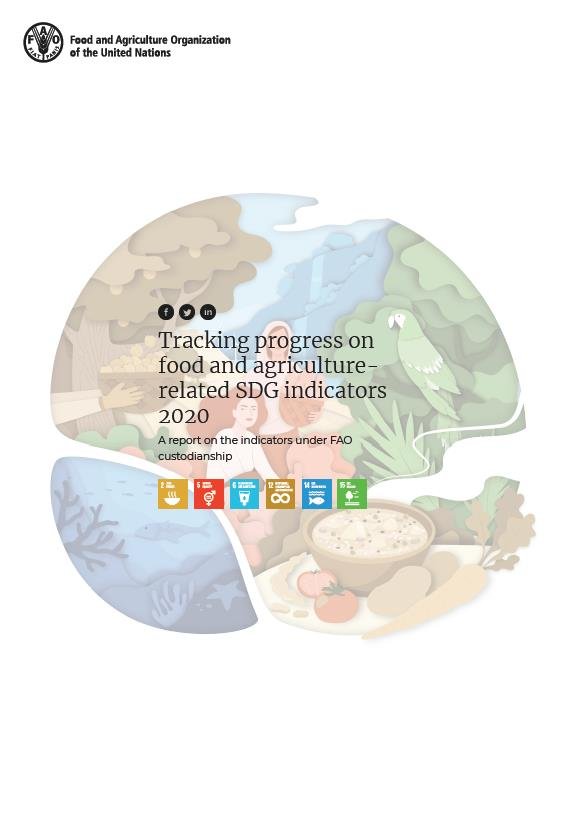 Read this article in French
Read this article in French- Share this article
- Subscribe to our newsletter
Tracking progress on food and agriculture-related SDG indicators 2020
The world was already off track to meet the Sustainable Development Goals by 2030 and the COVID-19 pandemic has made it even harder both to achieve the Goals and to monitor progress where it is being made, according to the report Tracking progress on food and agriculture-related SDG indicators 2020 released by the Food and Agriculture Organization of the United Nations (FAO) in September 2020.
Hunger, as well as other forms of food insecurity, are rising, and the pandemic has disrupted longer-term practices from conserving genetic resources, as well as immediate operations such as national agricultural censuses, which are key both to identifying immediate needs and nudging the world's farmers to more sustainable practices.
These censuses have been delayed, postponed or suspended in more than half of the 150 countries canvassed. Around one in four countries say that COVID-19 has disrupted national statistical agencies, with "nearly all" key data collection being adversely affected.
The report assesses current trends, finding many stagnating - including the hunger benchmark known as Prevalence of Undernourishment used to track SDG target 2.1 - or even deteriorating - such as the broader Food Insecurity Experience Scale used for the same target. Many of the indicators, particularly for measuring smallholder labour productivity and incomes with the aim of doubling them by 2030, suffer from inadequate data to assess both current status and progress.
Some of the key findings
- Agricultural productivity data are scarce, but indications are that small-scale food producers lag behind their larger peers. Data on smallholder incomes are relatively more abundant, but show that in most countries, smallholder incomes are less than half of those of larger producers.
- Global holdings of plant genetic resources for food and agriculture rose to 5.43 million in 2019, from 4.21 million in 2005. But efforts to secure crop diversity for crop wild relatives and underutilized crop species continue to be insufficient.
- The number of livestock breeds with sufficient genetic material stored to allow them to be reconstituted in case of extinction rose 10-fold in the decade to 2019. But they still amount to only 101 of the roughly 7 600 breeds reported around the world, some 73 per cent of which are at risk of extinction.
- Gender equality, investigated through the lens of women's land tenure, is far from realisation, and legal provisions in many countries do not adequately protect the rights of women to land. Only 12 per cent of assessed countries guarantee a very high degree of such protection.
- Both forests and the sustainability of global fish stocks continue to decline, though at a slower pace than before.
- Government investment in agriculture, measured as a share of GDP, has declined globally by around a third since 2001, led by sharp drops - from high levels - in much of Asia.
(FAO/ile)
Read more at FAO website
Visit the website of the report Tracking progress on food and agriculture-related SDG indicators 2020





Add a comment
Be the First to Comment